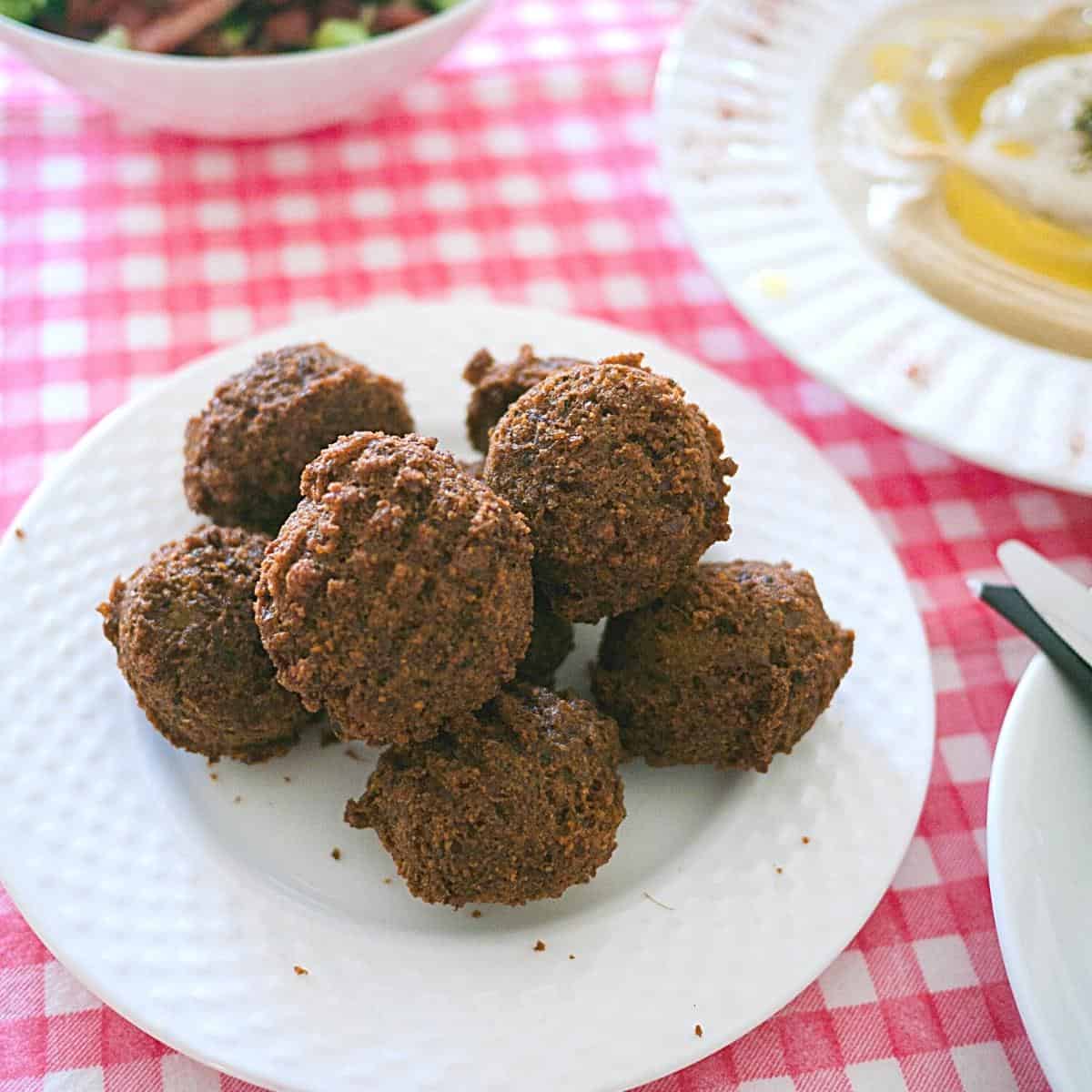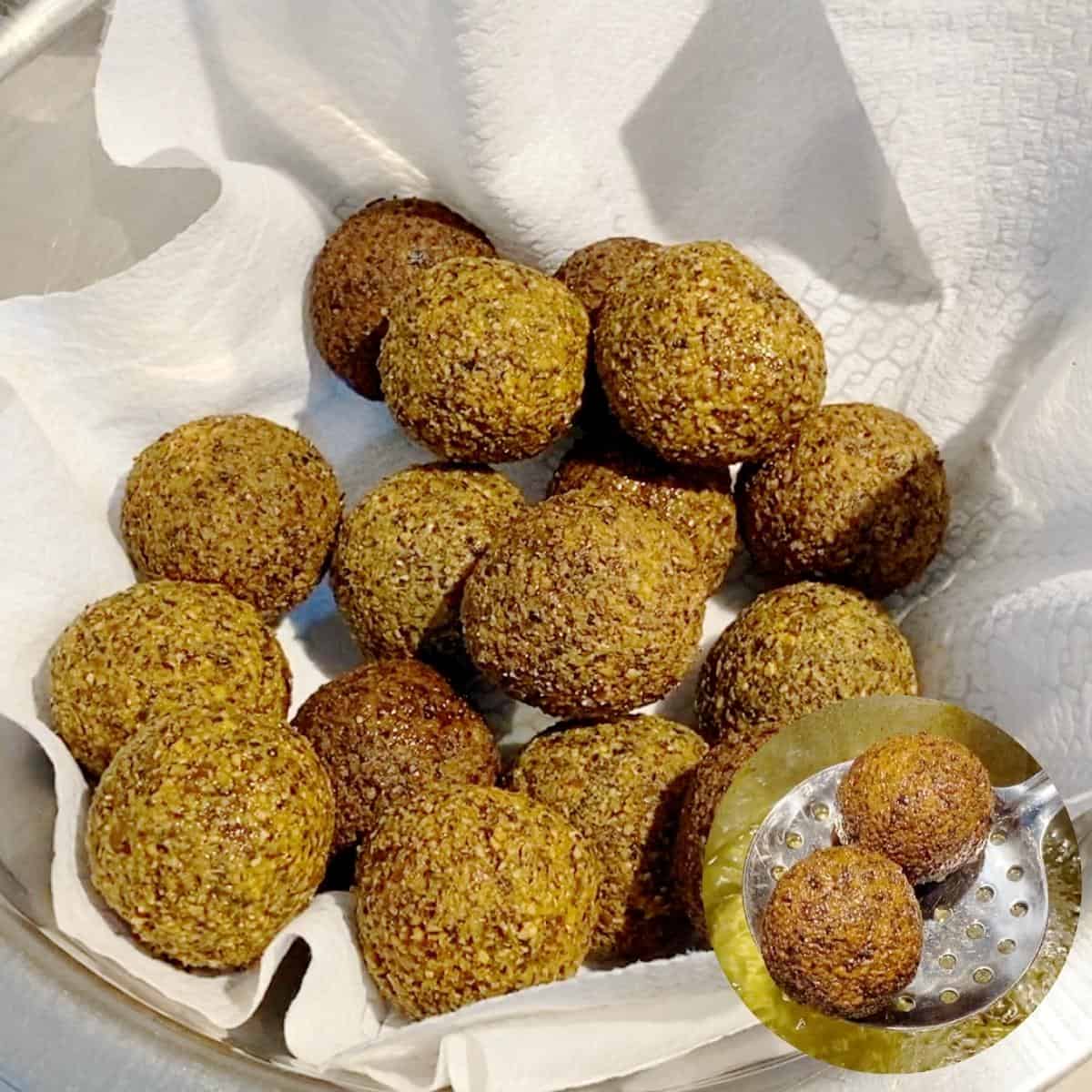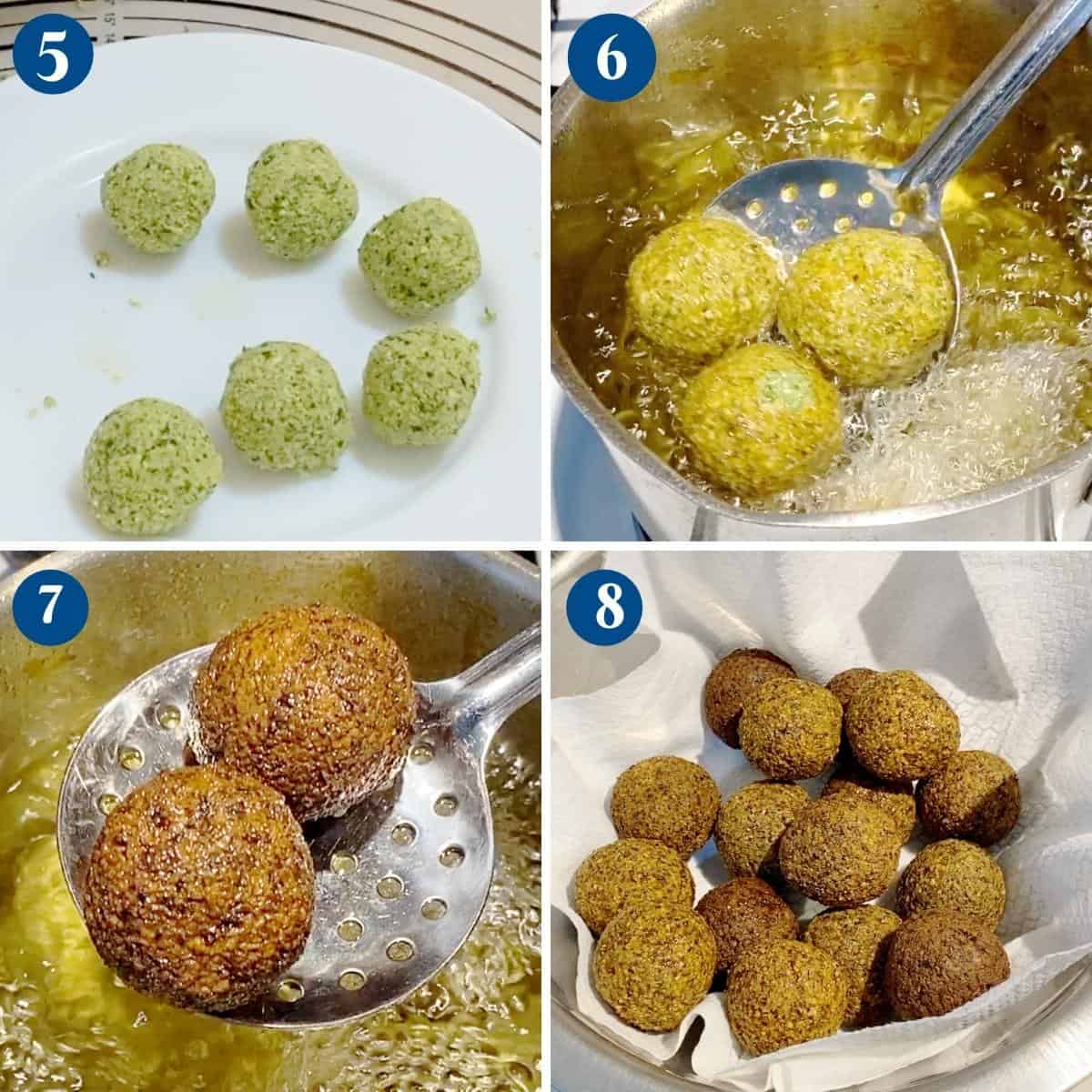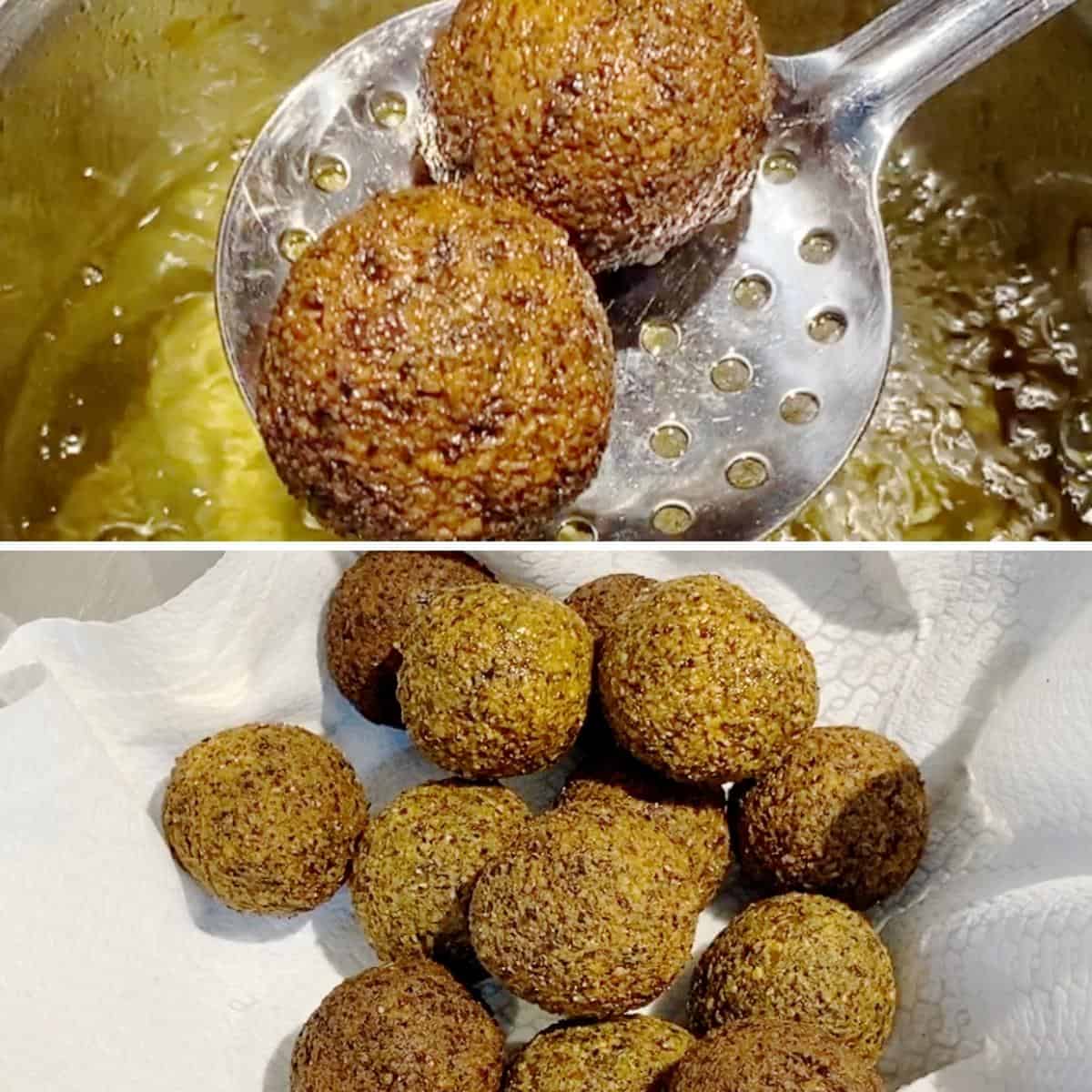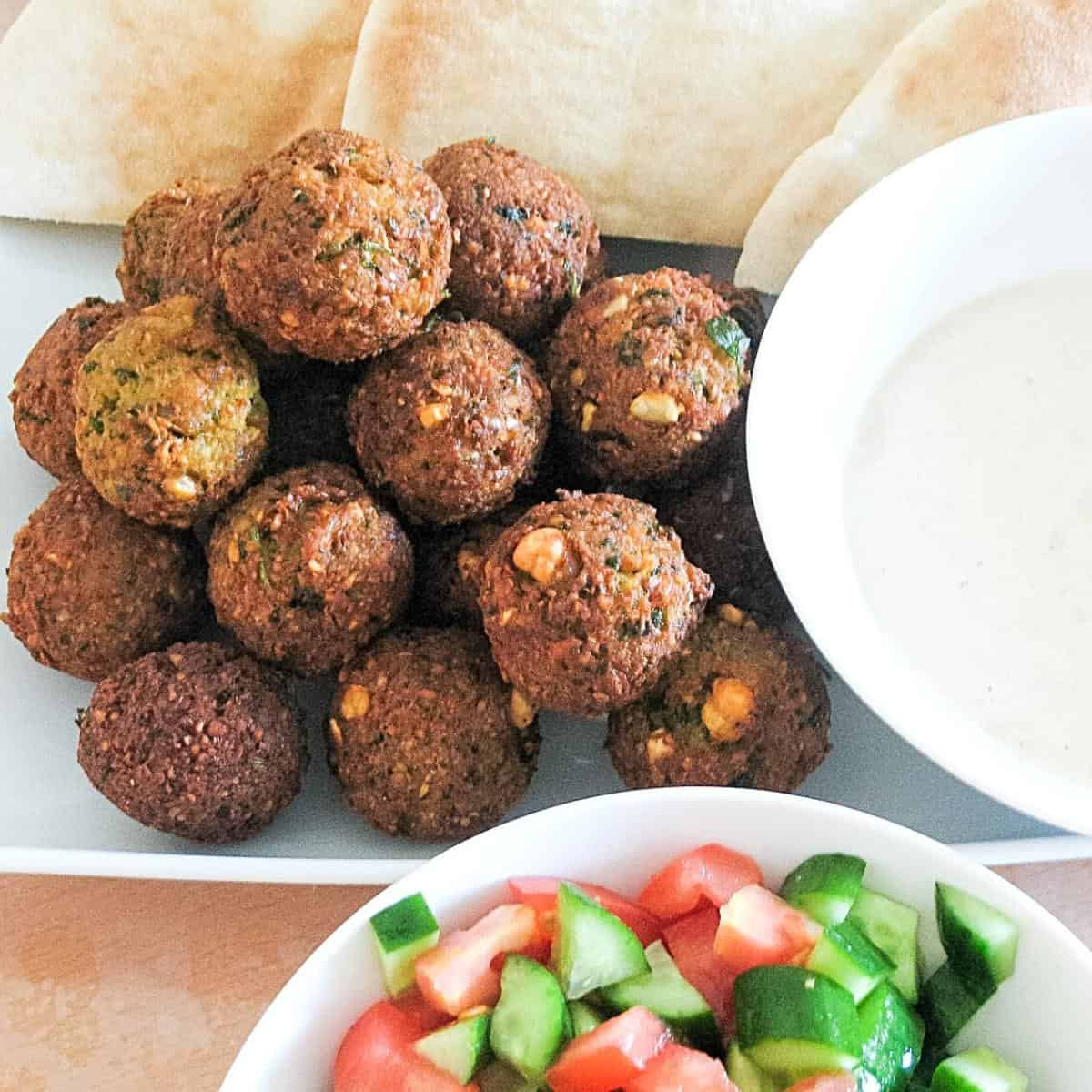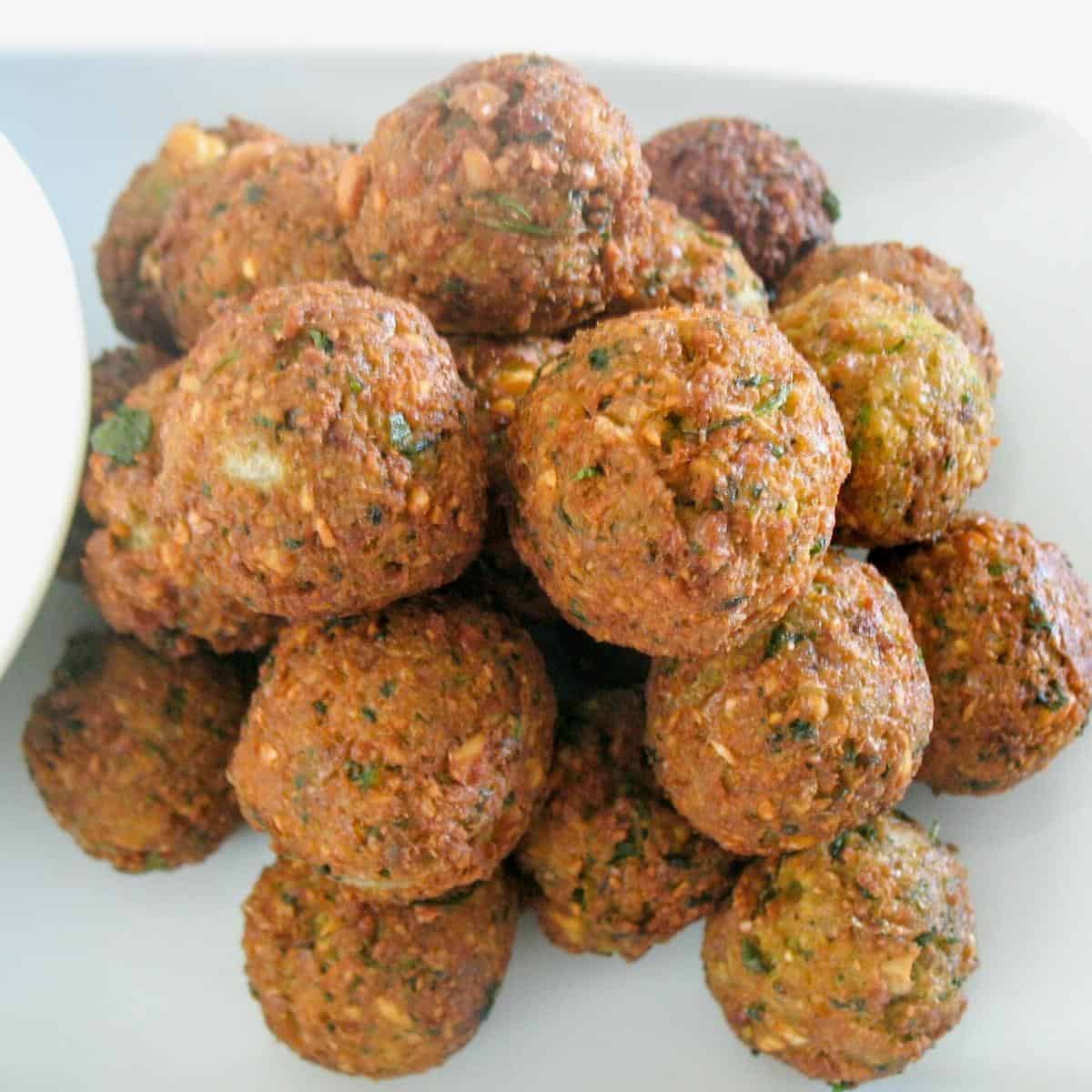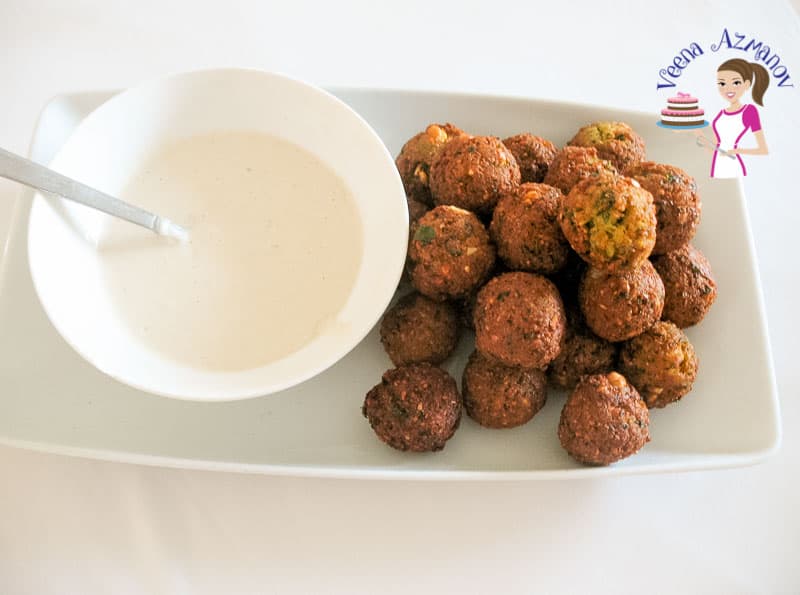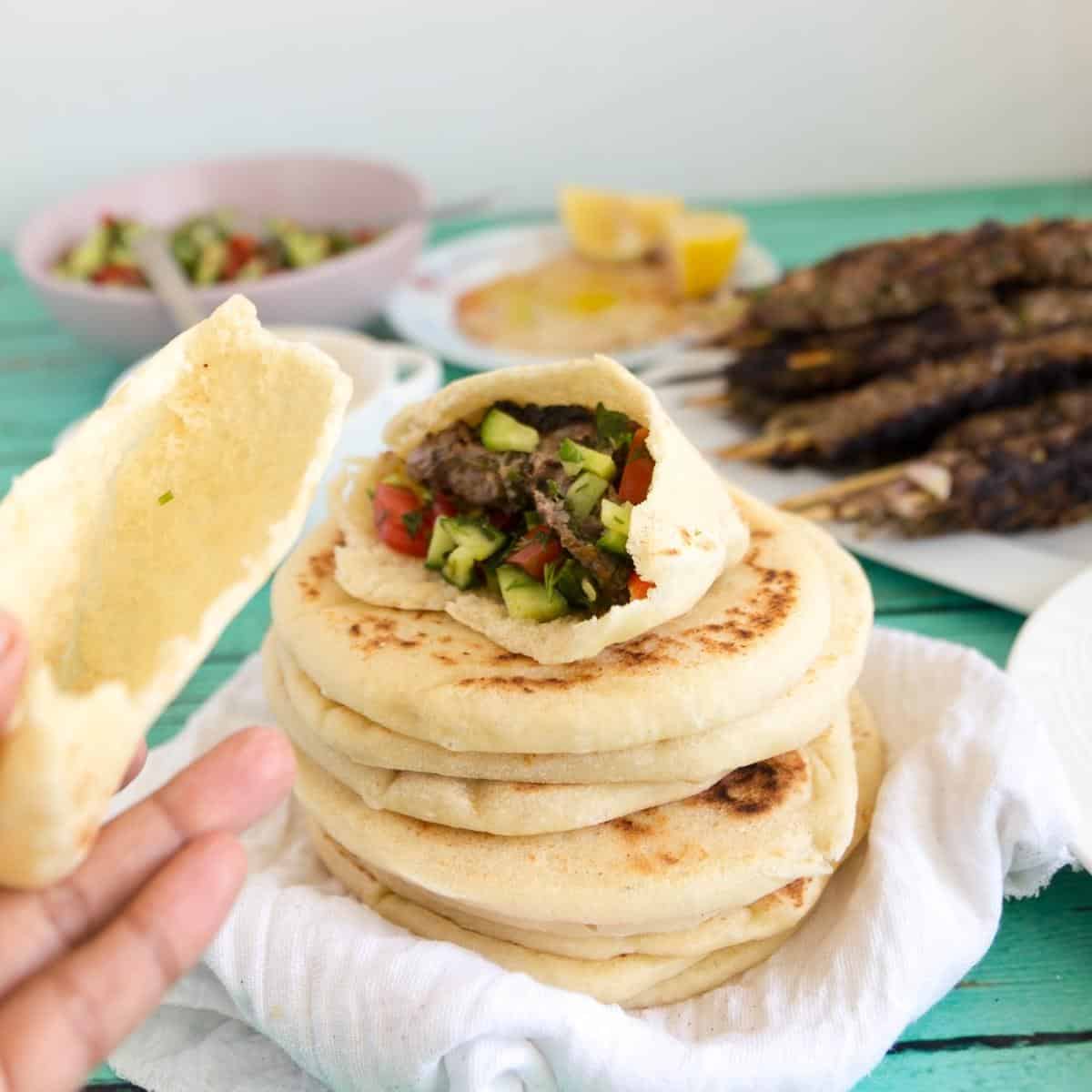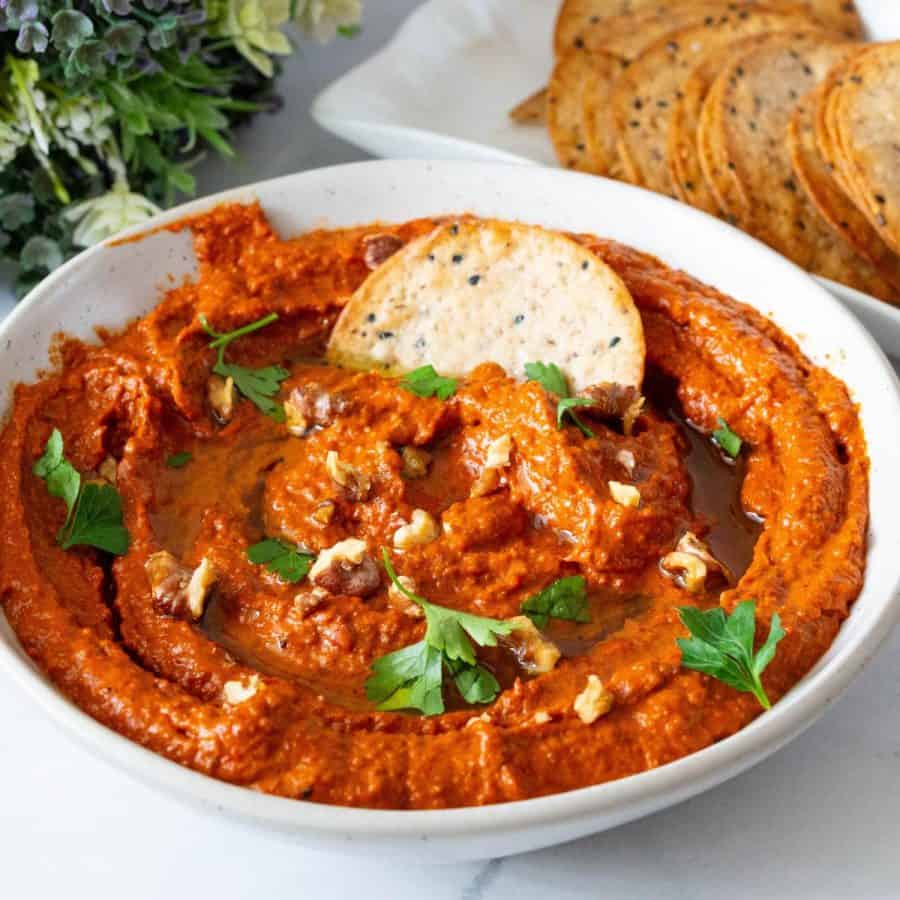My first taste of Middle Eastern food was falafel, and I was so in love with it. I didn’t care that it was deep-fried. I remember it was the perfect sandwich. Golf-size balls had a crispy texture on the outside yet were soft and moist on the inside. They were served with a simple salad made with just cucumbers and tomatoes, topped with a beautiful creamy tahini sauce.
Step-by-step: Homemade falafel recipe
One day in advance
Soak chickpeas in a large bowl with plenty of water. Leave to soak for 8 to 10 hours – overnight is best. Wash and drain well. Set aside.
Falafel mixture
In the bowl of a food processor, add chickpeas, parsley, cilantro, onion, and spices. Pulse until you have a coarse wet bread crumb consistency.Pro tip – Consistency is important, when you press the mixture in your fist you should be able to make a ball. If not, pulse some more (see video). Transfer the mixture to a bowl, and add the remaining ingredients – salt, pepper, baking powder, and flour. Combine well.Pro tip – This mixture can be kept in the fridge for up to 24 hours or until ready to fry.
Shape falafel
Take about 2 tbsp amount of falafel mixture in your hands and shape it into a ball (about the size of a walnut). Set aside. Do the same with all others.Pro tip – Dipping your hands in water makes it easier as it prevents the mixture from sticking to your hands. These balls can be made ahead of time and stored in the refrigerator until you are ready to serve.Pro tip – Falafel is best served hot as soon as they are made so don’t deep fry them in advance.
Frying the falafel
Heat cooking oil in a deep-fryer or large pot about 3 inches deep so that the falafel balls will float. The oil should be medium to high heat, about 350-375°F (175-190°C)Pro tip – You can use a thermometer to keep the oil at the right temperature. As a guide, if you drop a falafel in the oil, it should sizzle, not sink. Deep fry the falafels in the oil for about 3 to 4 minutes each until golden brown and cooked through.Pro tip – Do not overcrowd the pan as it will bring the temperature of the oil down and cause the falafel to break in the oil. Drain on a paper towel to absorb excess oil. Serve immediately with pita, hummus, tahini, and a side salad.
Ultimate Ground Beef Kebabs Moroccan Fish in Spicy Tomato Sauce – Chraime Moroccan Chicken Stew with Couscous Chicken Kebabs Middle Eastern Grated Carrot Salad Recipe Easy Pita Bread Recipe, Cheese Stuffed Pita, Potato Stuffed Pita
Frequently asked questions
Thank you for sharing - Save for later
The exact origin of falafel is a subject of debate, and its history goes back several centuries. It is believed to have originated in the Levant region, which includes modern-day countries like Israel, Palestine, Lebanon, Syria, and Jordan. However, different cultures within the region have their own variations of falafel. The earliest known version of falafel dates back to ancient Egypt, where a dish called “taʿamiya” was made with fava beans. Over time, the use of chickpeas became more common, and today, they are the predominant ingredient in most falafel recipes. Falafel gained popularity across the Middle East, particularly among the Arab communities. It later spread to other parts of the world, thanks to immigration and global cultural exchange. Today, falafel is enjoyed internationally and has become a popular vegetarian or vegan option due to its flavorful and nutritious qualities.





